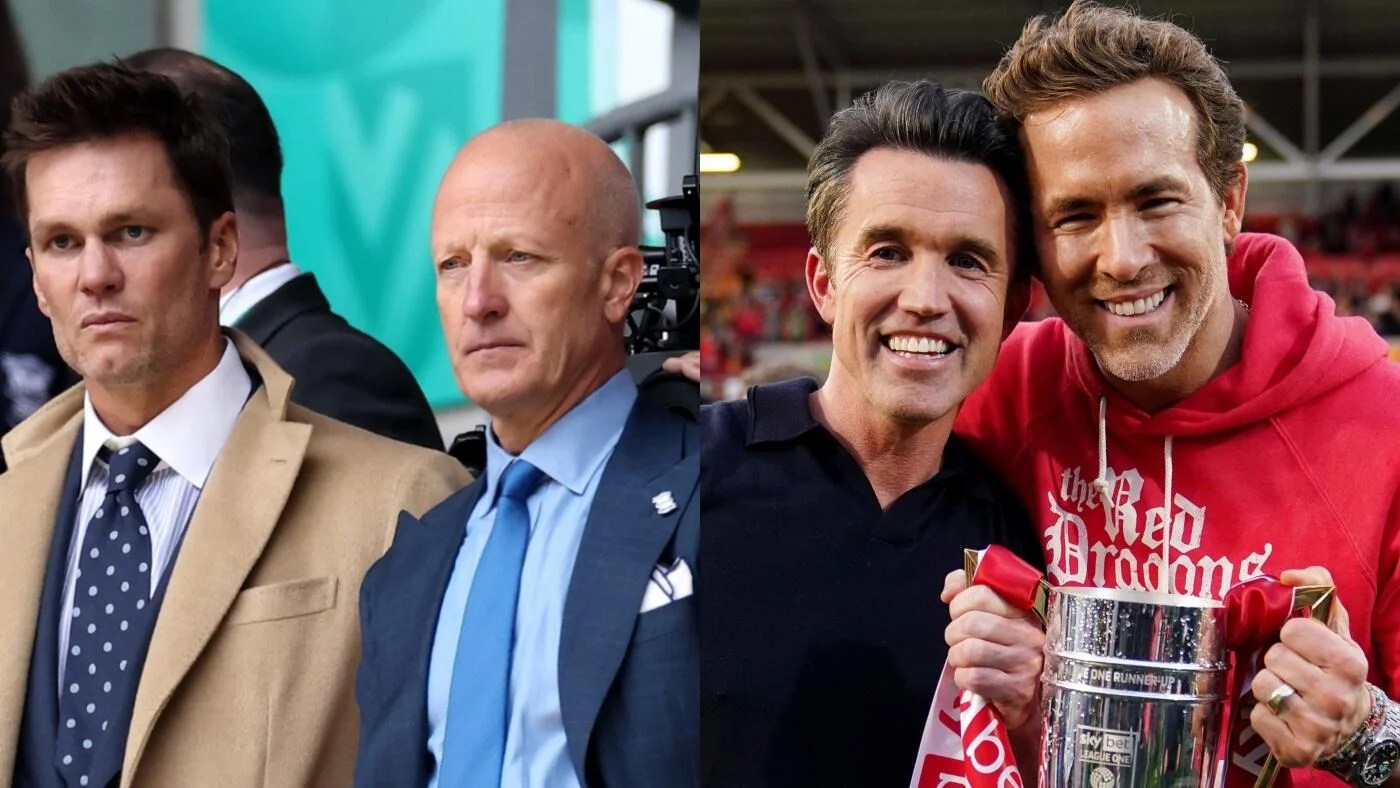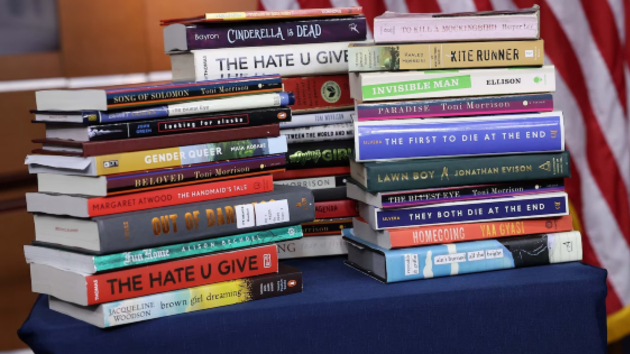Wrexham vs. Birmingham City: What the ‘Hollywood Derby’ tells us about the future of English football
Written by CBS SPORTS ALL RIGHTS RESERVED on October 2, 2025


If you want a sense of where English football might be heading, fire up Paramount+ on Friday afternoon. Already dubbed the “Hollywood Derby,” Birmingham City’s visit to Wrexham has established itself as the premier clash of boardrooms and brands. In the red corner: Deadpool and United Airlines. In the blue: the greatest quarterback of them all. There’ll be games at Old Trafford and the Santiago Bernabeu that lack the star wattage of the Racecourse Ground.
That is not a fact that is universally popular across the English footballing pyramid. Both Wrexham, bought by actors Rob Mac and Ryan Reynolds in 2020, and Birmingham City, who three years later were taken over by a consortium that included seven-time Super Bowl champion Tom Brady and appeared to take its name from the family “Peaky Blinders,” have enjoyed extraordinary success in recent years. Indeed, last season they shared the top two spots in League One; both have settled into the Championship relatively effectively and a win for either side might serve to establish them as playoff contenders in the months ahead.
On field results certainly prompt envious glances but there are also those who question whether the English Football League loses its much prized authenticity when it functions as a content house, a landing spot for advertisers craving authenticity. That is not a view shared by Tom Wagner, the City chairman. Speaking at The Summit, part of Leaders Week London 2025, he was relishing his trip to North Wales and is convinced that the so-called “Hollywood Derby” has been good for both its rivals.
“I have enormous respect for Ryan and Rob. They’re good people and they’re doing a good thing. What they’ve done in Wrexham is amazing. The people in Wrexham are incredible, period, full stop. It’s a wonderful place to go and visit and enjoy a football match.” That’s exactly what Wagner will be doing. “Friday night, I’ll be in trainers, jeans and a hoodie, sitting in the away end, probably a few pounds lighter for the pints that I’ll buy.
“The way we like to do it is we’ll go sit with our fans and scream and yell and act like kids again. At the end of the day, isn’t this what it’s all about?”
Wagner, however, understands that this particular mini rivalry is a prelude to the big one. There hasn’t been a Second City derby, one of English football’s most gloriously needly, since Aston Villa escaped the Championship in 2019. There won’t be many Blues fans who share their chairman’s desire to see further success at Villa Park nor would fans on either side of the Birmingham divide feel entirely good about facing off against the other in a big cup final, as Wagner himself acknowledges.
“There’s great joy in the misery of your crosstown rivals,” he said. “And I respect that, that’s what makes [the rivalries] great. But if I were to root against the Villa or Wolves or other clubs in the greater Birmingham area then I’m lessening the quality of Birmingham football writ large.
“Why are [Manchester] United and City so big? Well because there are two great clubs in the same city. Why are the various clubs in London so powerful and have such great brand appeal? It’s because there are so many great derbies across the city. Why wouldn’t we want something like that in Birmingham? The more attention that’s brought to those rivalries, the more investment will flow because it just increased the brand value and the interest.”
Wagner shares a passionate vision for a city upon whom hard times have been visited lately, from garbage strikes to vacation memes. He wants to change that and firmly believes his side could sell out the new stadium that is planned for them, one whose 62,000 capacity would make for the fourth largest club stadium in the United Kingdom. “We don’t want to shoot for mediocrity,” he warns, “we want to shoot for excellence.” Those words might be enough to worry his head coach Chris Davies given that Birmingham, one of the pre-season promotion favorites, find themselves 11th through the first eight games of the season.
City do not lack for ambition. Wagner spoke of their being space for “10 fantastic teams” who might compete for the sport’s biggest honors. As many as eight places in that group might already have been claimed and he wants City to muscle in. He is also very much of the view that those at the top of the tree should not be hamstrung in pursuit of greater parity between the Premier League and EFL.
“I think the top clubs in English football have to be protected at all costs,” he said. “We can’t take too much from the top clubs to support the pyramid. If you have a situation where the top teams are not dominant, I mean internationally, with the very best players and product, then the interest will wane — particularly from the U.S. market which will drive interest and capital flows into football.
“I love the pyramid – we have experienced a lot of it — but the top clubs that are highly successful have significant brand value and draw interest. We hope that interest will help grow the entire pyramid.
“Rather than focusing on how we distribute an existing pie, we grow the pie. We spend our time, energy thinking about how we grow the overall revenue streams and interest in English football. If we’re able to do that, everybody benefits more than distributing an existing set of revenue streams in a different way.”
Given that Wagner aspires to see Birmingham City eventually enter the inner circle, it is perhaps not a surprise that he wants those clubs to be given license to spend. There will be plenty of other candidates to eventually carve out a space in a top 10, Friday’s opponents might yet be one of them. They might not have any record of playing in the top flight but if investors share their reported belief that Wrexham is a business worth $475 million in the Championship then there are quite significant possibilities. After all, that is triple what a U.S. consortium paid for Sheffield United.
The question, of course, is how other clubs can grow the pie in the way that Wrexham and City have. There are only so many greatest-of-all-time quarterbacks — one I suppose — whose mere proximity turns an historic underdog into a club that draws eyeballs in the U.S. and elsewhere. There are only a finite number of streaming platforms who want to tell a heartwarming tale of community and spirit in post-industrial Britain.
“The way that those clubs can do it is by honestly and genuinely presenting what makes their product unique,” said Wagner. “What makes each of these clubs unique is the communities in which they’re based. When you drive through the English countryside and you pass through a little village and you know that name. ‘I’m passing through Wycombe, that’s pretty cool, wouldn’t it be nice to experience a match in Wycombe?’
“Because each of these communities has a long history, that’s what makes it unique. You’ve got to take what’s special about each of the communities, each of the fanbases, what’s different about them, and then package that in a way that draws interest. There’s a reason why people go generations and generations and generations following these clubs.”
For Birmingham that is about, as Wagner puts it, crafting a story around “a long time sleeping giant.” Reviving that could bring joy to the Birmingham City faithful. That it would also make for great content would surely be a welcome byproduct for its owners.
The post Wrexham vs. Birmingham City: What the ‘Hollywood Derby’ tells us about the future of English football first appeared on OKC Sports Radio.





